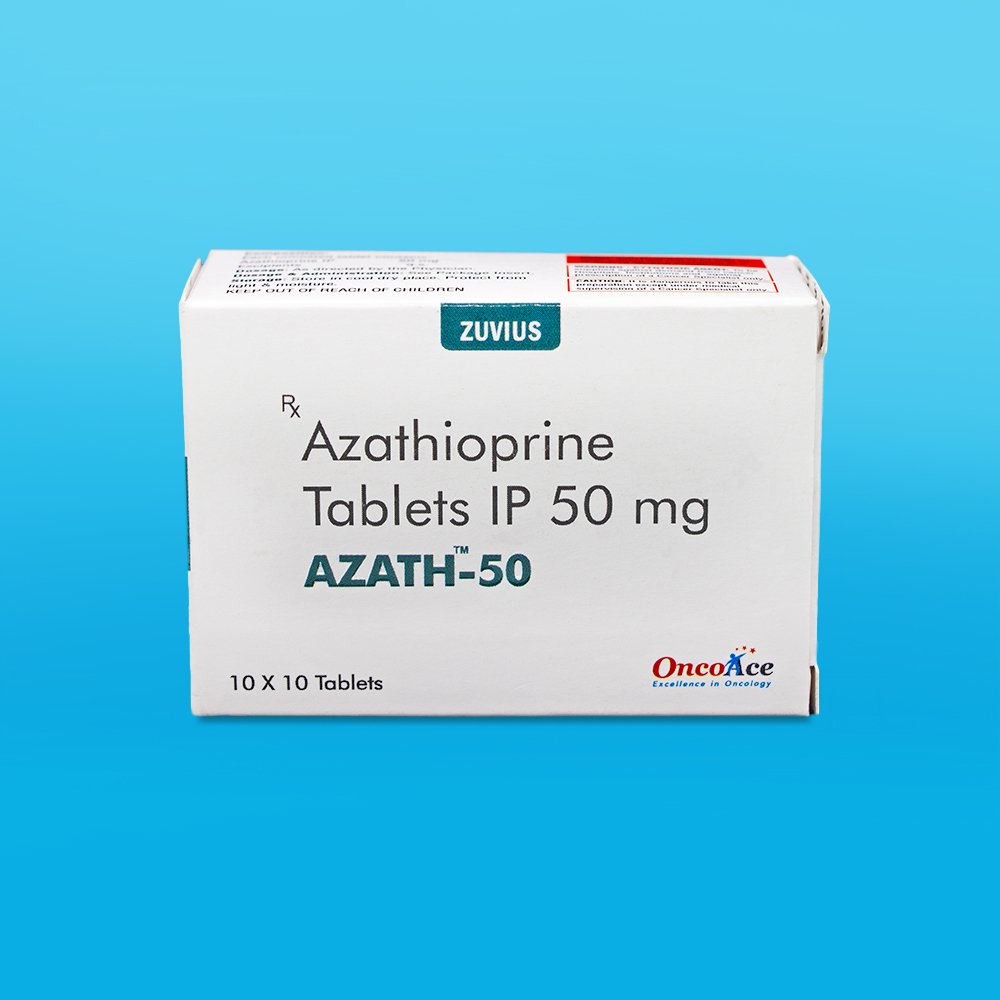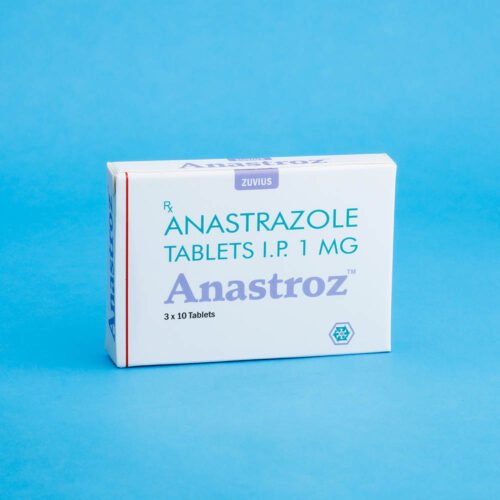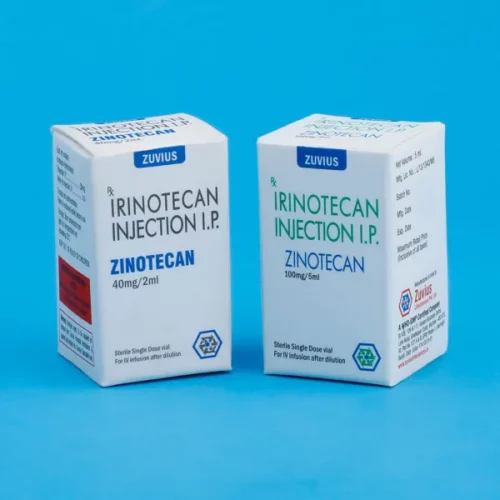Azath-Azathioprine Tablet
Azathioprine Tablet
Strength: 50, 100 mg
Pack Size: 1 x 10
Drug Class: Antineoplastic and Immunosuppressive agents
Dosage and Administration:
Renal Homotransplantation: The dose of azathioprine required to prevent rejection and minimize
toxicity will vary with individual patients; this necessitates careful management. The initial dose is usually
3 to 5 mg/kg daily, beginning at the time of transplant. Azathioprine is usually given as a single daily dose
on the day of, and in a minority of cases 1 to 3 days before, transplantation. Dose reduction to
maintenance levels of 1 to 3 mg/kg daily is usually possible.
Rheumatoid Arthritis: Azathioprine is usually given on a daily basis. The initial dose should be
approximately 1.0 mg/kg (50 to 100 mg) given as a single dose or on a twice-daily schedule. The dose
may be increased, beginning at 6 to 8 weeks and thereafter by steps at 4-week intervals, if there are no
serious toxicities and if initial response is unsatisfactory. Dose increments should be 0.5 mg/kg daily, up
to a maximum dose of 2.5 mg/kg per day.
Use in Renal Dysfunction: Relatively oliguric patients, especially those with tubular necrosis in the
immediate postcadaveric transplant period, may have delayed clearance of azathioprine or its metabolites,
may be particularly sensitive to this drug, and are usually given lower doses.
Cold Storage: no
Azathioprine, an immunosuppressive antimetabolite, is available in tablet form for oral administration.
Each scored tablet contains 25 mg, 50 mg, 75 mg and 100 mg azathioprine and the inactive ingredients
croscarmellose sodium, lactose monohydrate, magnesium stearate, maize starch and povidone K30.
Azathioprine is chemically 6-[(1-methyl-4-nitro-1H-imidazol-5-yl)thio]-1H-purine. The structural formula
of azathioprine is:
It is an imidazolyl derivative of 6-mercaptopurine and many of its biological effects are similar to those of
the parent compound.
Azathioprine is indicated as an adjunct for the prevention of rejection in renal homotransplantation. It is
also indicated for the management of active rheumatoid arthritis to reduce signs and symptoms.
Renal Homotransplantation: Azathioprine is indicated as an adjunct for the prevention of rejection in
renal homotransplantation. Experience with over 16,000 transplants shows a 5-year patient survival of
35% to 55%, but this is dependent on donor, match for HLA antigens, anti-donor or anti-B-cell alloantigen
antibody, and other variables. The effect of azathioprine on these variables has not been tested in
controlled trials.
Rheumatoid Arthritis: Azathioprine is indicated for the treatment of active rheumatoid arthritis (RA) to
reduce signs and symptoms. Aspirin, non-steroidal anti-inflammatory drugs and/or low dose
glucocorticoids may be continued during treatment with azathioprine. The combined use of azathioprine
with disease modifying anti-rheumatic drugs (DMARDs) has not been studied for either added benefit or
unexpected adverse effects. The use of azathioprine with these agents cannot be recommended.
Azathioprine is used to prevent rejection of a transplanted kidney. It belongs to the group of medicines
known as immunosuppressive agents. Azathioprine will lower the body’s natural immunity in patients who
receive transplants to prevent rejection of the new kidney. It is also used to relieve joint pain and swelling
for patients with active rheumatoid arthritis.
Chronic immunosuppression with azathioprine, a purine antimetabolite increases risk of malignancy in
humans. Reports of malignancy include post-transplant lymphoma and hepatosplenic T-cell lymphoma
(HSTCL) in patients with inflammatory bowel disease. Physicians using this drug should be very familiar with
this risk as well as with the mutagenic potential to both men and women and with possible hematologic
toxicities. Physicians should inform patients of the risk of malignancy with azathioprine.
A gastrointestinal hypersensitivity reaction characterized by severe nausea and vomiting has been
reported. These symptoms may also be accompanied by diarrhea, rash, fever, malaise, myalgias,
elevations in liver enzymes, and occasionally, hypotension. Symptoms of gastrointestinal toxicity most
often develop within the first several weeks of therapy with azathioprine and are reversible upon
discontinuation of the drug. The reaction can recur within hours after re-challenge with a single dose of
azathioprine.









